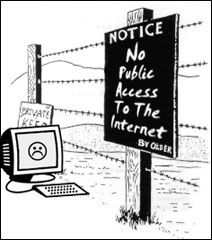Lime Rock Park is the only race I’ve actually been to, as opposed to watching it on TV. It’s interesting in a couple of respects.
First of all Lime Rock really is a park. Lakeville is the back end of beyond, many solid miles of 2 lane distant from the highway. There are a few buildings and a bridge to the infield and that’s it. Spectators bring a cooler and a blanket and sit on the ground under the trees, some even camp out for the weekend so there are little tents all over the place. When my Dad and my brother and I went we hung out on ‘the hill’ where you can see the first 4 turns and most of the main straight.
The other thing you notice about it is it’s extremely narrow and it’s hard to imagine any passing goes on, although it happens all the time.
Which brings me to the second interesting thing about Lime Rock, these are Sports Cars and there are 4 different classes of them running on track at the same time with varying speeds (which can make it confusing to watch).
The exotic looking and fastest ones are ‘prototype’ cars and come in 2 flavors, enclosed and open cockpit. They generally have a seat for a navigator/mechanic (though it’s mostly an anachronism).
Then there are 2 classes of ‘touring (production)’ cars, Corvettes and everyone else. They look like Porsches and Audis and BMWs and Corvettes (surprise) but they’re not generally street legal. The touring cars are 20 or 30 miles an hour slower than the prototypes so when I say passing all the time I mean ALL the time, they’re kind of like rolling road blocks.
Speaking of road, as much racing takes place off it as on it and the only penalty is tearing up your undercarriage. There is also a tendency to spend a lot of time figuring out which direction you are pointing after your last spin. While there are a lot of bumps and offs surprisingly few of them are race ending.
For a Sports Car race Lime Rock is mercifully short. The name races- LeMans, Daytona, Sebring are endurance races with several driver changes, to say nothing of tires and fuel. It’s not uncommon for a badly damaged car to spend several hours in the pits and come back to race competitively, victory margins are measured in hours and minutes rather than seconds.
They don’t race on Sunday because the neighbors complain, but when people talk about Memorial Day being the busiest weekend in motor sports they’re generally including Lime Rock whether they know it or not.
Coverage on Speed starts at 2 pm ET.




 In the November elections, one of the greatest losses that the left suffered was Russ Feingold. What we didn’t notice until this past week during the rush to please the right wing and President Obama by renewing the unaltered (un)Patriot Act for four more years was that there were others who had picked up the cause of the left, Sen. Ron Wyden (D-OR), Mark Udall (D-CO), Jeff Merkley (D-OR) and Tom Udall (D-NM).
In the November elections, one of the greatest losses that the left suffered was Russ Feingold. What we didn’t notice until this past week during the rush to please the right wing and President Obama by renewing the unaltered (un)Patriot Act for four more years was that there were others who had picked up the cause of the left, Sen. Ron Wyden (D-OR), Mark Udall (D-CO), Jeff Merkley (D-OR) and Tom Udall (D-NM).
Recent Comments